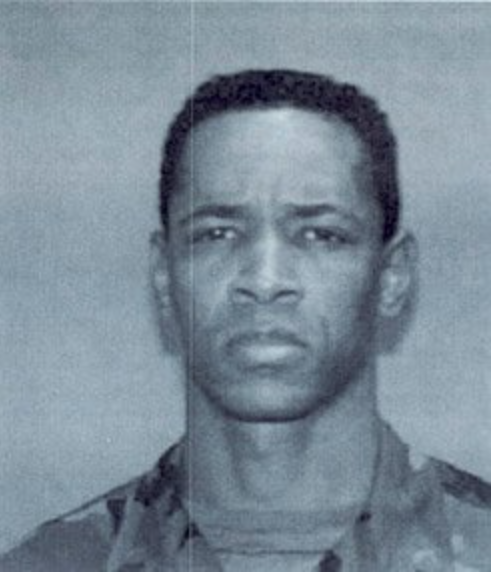I.
If public morality continues to be tossed around like a political football – as it has long been – then morality will become (or, perhaps more accurately, remain) nothing more than gloss. We will be compelled to look at public moral stances as utterly divorced from private moral conduct and merely a role that one plays to delude those too stupid to see past the charade.
Two decades ago, when Republicans got on their high horses to denounce Bill Clinton’s conduct, they counted among their ranks several adulterers (some serial) and an actual child molester (Dennis Hastert), whom they saw fit to elevate to a leadership role. A few years prior to that, Democrats grilled Clarence Thomas over sexual harassment claims while allowing Ted Kennedy – who allegedly sexually assaulted a waitress – to remain an elder statesman. One of Thomas’s more vocal critics (Brock Adams) would find himself accused of multiple sexual assaults not long thereafter.
How can one not read outrage as mere opportunism?
And yet, at the same time, motive isn’t everything*. Truth may be weaponized and exploited, but it is ultimately its own side. That Clinton-era congressional Republicans were hypocrites does not “prove” that Clinton’s accusers were not telling the truth. That Christine Blassey Ford’s accusations are being used to achieve nakedly partisan ends does not “prove” that they are untrue, either. If every member of Congress up and vanished (one can always hope, right?), then what happened or did not happen should remain fundamentally unchanged.
III.eli
Speaking of proof, a mere accusation is not and should not ever be construed as evidence. For those who see a higher evidentiary burden as an impediment to justice, bear in mind that, as per the Innocence Project, eyewitness testimony absent corroborating physical evidence is one of the leading causes of wrongful convictions nationwide. That testimony needn’t be intentionally fabricated to be problematic. As Dr. Elizabeth Loftus has noted, our memories can be surprisingly malleable.
I believe that Dr. Ford is not lying. I do not think that she would invite intense public scrutiny (to say nothing of death threats) over a contestable fabrication. I do not think she is a skillful enough actress to convincingly perform a scripted recollection. I believe that her pain is genuine, that she deserves our empathy and respect, and that her claim should be taken seriously.
At the same time, she has not proven anything.
IV.
Of course, criminal procedure and public perception do not operate by the same rules and expectations. We should need more than just someone’s word to sustain a criminal conviction. However, the same cannot be said for our ability to form suspicions.
Within the current context, it makes no sense for there not to be a Kavanaugh investigation. Such an investigation would at least present an opportunity to either corroborate Ford’s claims or exonerate Kavanaugh, and it would almost have to be handled with more professionalism than yesterday’s circus of a hearing.
Just as years of two-faced moral posturing have brought us to the point where we see morality as performative, the calculating nature of political theater is conditioning us to view humanity the same way. One can look at either Kavanaugh’s angry flare-up and Lindsey Graham’s attendant outrage or the tears shed by Ford and others and assume manipulative intent. After all, someone gains from those displays.
And yet, when we reduce political actors to blue and red chess pieces, we stop seeing them as people. Discussing sexual assault, especially in such a public setting, seems like it would inherently upsetting, as would listening to it being described. Why wouldn’t there be tears? And why wouldn’t being accused of such an assault lead to anger?
Thus, we’ve arrived at a vicious cycle: we assume, not without merit, that politicians and those connected to our political system are constantly lying to us, that we as voters are reduced to pawns, which then leaves us jaded and infuriated to the point where we dehumanize those we believe to be pulling our strings, which in turn leaves them wondering what theatrics are needed to keep our donations and our votes.
“Putting politics aside for a minute” is an appeal to futility, but let us pretend that there does exist a viable course of action. It might look something like this:
Postpone any further action on Kavanaugh’s nomination (Republicans, having held up Merrick Garland’s nomination, are in no position to object to a delay) and conduct an investigation. If the investigation exonerates Kavanaugh, the Senate can vote to confirm him. If evidence emerges that supports the allegations against him, prosecute him to the fullest extent of the law. No matter the outcome, some will gripe about “the system being broken,” but we can at least say that we have neither ignored yet another victim nor let trial-by-media prevail.
*Speaking of motive, for those who impugn Ford’s, a question: given Democrats’ reflexive hostility toward all things Trump, why would it take this long for a Trump nominee to face these allegations? Why, if there is no merit to them and they are that easy to fabricate, would they have not fallen on Justice Gorsuch or any number of high-level administration officials?


